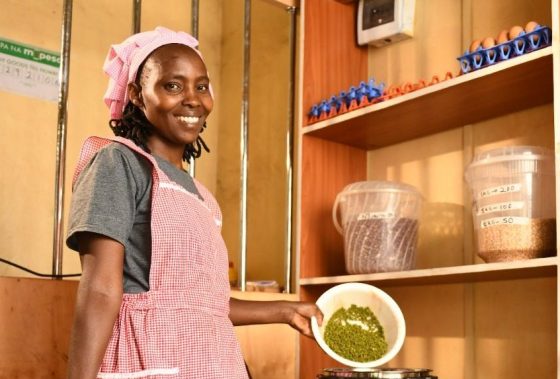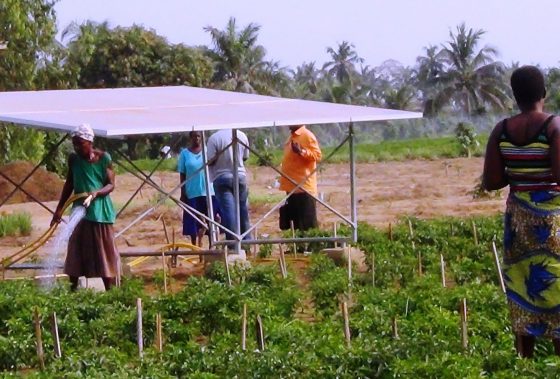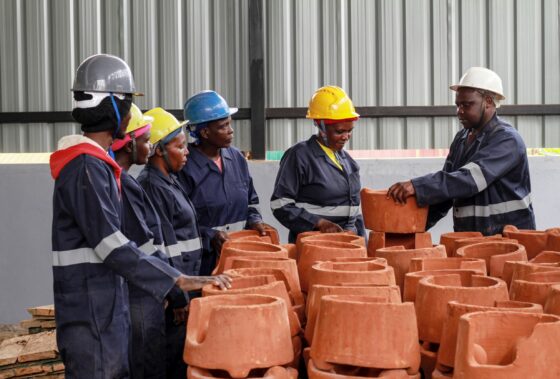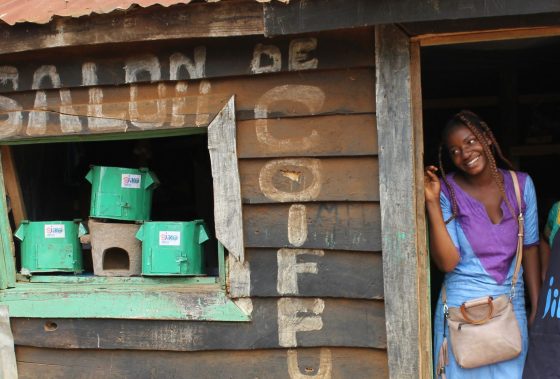
Kenya
In Kenya, a large part of the domestic energy requirement is covered with traditional biomass. As many people still use inefficient three-stone-fires for cooking, the country’s firewood demand is higher than its annual supply. This deficit has led to high rates of deforestation resulting in desertification, land degradation, droughts and famine. At the same time, the electricity access rate in rural areas is still low. EnDev Kenya facilitates access to improved cookstoves to enhance clean cooking and promotes small solar systems for rural inhabitants. The programme in Kenya is implemented by GIZ, SNV and CLASP.
Technologies used in this project
- Improved cookstoves
- Stand-alone systems
Country data
- People with access to modern cooking energy: 5,923,881*
- People with access to electricity: 461,243*
- SI´s with access to modern energy services: 1,921*
- MSME´s with access to modern energy services: 12,751*
- *Achievements until December 2024
Approach
EnDev applies a market-based, multi-stakeholder approach to expand access to modern energy solutions for households, micro, small and medium-sized enterprises (MSMEs), and social institutions. By focusing on both the productive use of energy and clean cooking, the program supports inclusive economic development, particularly in rural and underserved areas.
To broaden the adoption of higher-tier cooking technologies, such as electric and bioethanol stoves, EnDev addresses key market barriers — including high energy costs. For example, in collaboration with national utilities and energy agencies, EnDev supports pilot initiatives and tariff experiments that aim to make electric cooking more affordable for low-income households.
In parallel, EnDev facilitates national-level coordination platforms, such as clean cooking roundtables and multi-stakeholder coalitions. These bring together government actors, private sector companies, and development partners to align efforts, share data, and accelerate the implementation of national strategies for energy access.
A key component of EnDev’s approach is results-based financing (RBF), which incentivizes private sector actors to scale up clean energy solutions in both the household and productive use segments. These include targeted interventions for solar energy systems and electric cooking appliances, tailored to both end users and small businesses.
To ensure sustainability, EnDev builds local capacity for installation, maintenance, and after-sales service. In partnership with training institutes and innovation hubs, technical training is provided to last-mile entrepreneurs and informal enterprises — equipping them with skills in system design, installation, troubleshooting, and repairs.
Recognizing the role of finance in driving adoption, EnDev also works with financial service providers to test innovative end-user financing models, such as digital savings-linked approaches like “Save Now, Buy Later.” These models improve affordability and connect end users with technology suppliers and credit providers.
EnDev further integrates a Leave No One Behind (LNOB) principle, implementing inclusive energy access interventions in marginalized areas, including refugee-hosting regions. Here, EnDev supports improved cookstove and solar markets through partnerships with distributors and financial institutions, helping to build resilient local energy markets.
EnDev Kenya is also implementing a USAID-funded Smart Community Coalition Innovation Fund project on solar electric bicycles in a humanitarian context, and the IKEA Foundation-funded Sustainable Energy for Smallholder Farmers (SEFFA) project, which promotes productive use of energy solutions in rural value chains.
Under the broader partnership umbrella, EnDev implements two associated projects, the African Biogas Component (ABC) Kenya, funded by DGIS and DANIDA, and the Green Climate Fund (GCF) co-financed project “Climate-friendly Cooking in Kenya and Senegal”.
Learn more about EnDev´s approachImpacts
Over 1.5 million people in Kenya and Tanzania have gained access to cleaner cooking solutions.
More than 1,000 local stove producers and energy entrepreneurs trained and supported.
Over 1,100 electric pressure and induction cookers distributed through PAYGo and cooperative models.
60+ Clean Cooking Advocates (CCAs) trained, creating local jobs and raising awareness at community level.
Results-based financing has supported the growth of 20+ private sector partners, including PAYGo solar firms and local SACCOS.
EnDev-supported businesses report increased income, better market access, and enhanced technical capacity.
Clean cooking and solar energy now reaching refugee-hosting regions and other underserved communities, supporting inclusion and resilience.
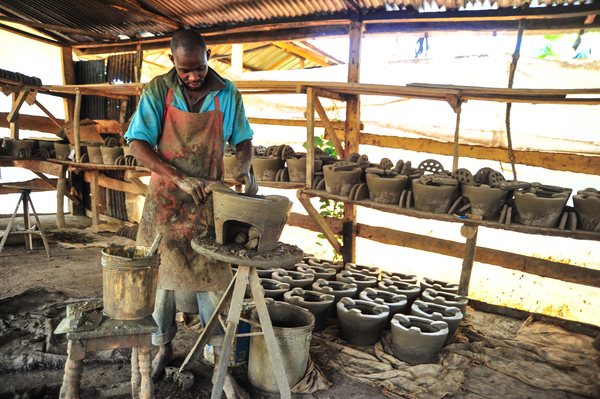
Promotion of Climate-Friendly Cooking: Kenya and Senegal
The project “Promotion of Climate-Friendly Cooking: Kenya and Senegal” is commissioned by the Federal Ministry for Economic Cooperation and Development (BMZ) and co-financed by the Green Climate Fund (GCF), Kenya’s Ministry of Energy, and Senegal’s Ministry of Petroleum and Energy and Ministry of the Environment and Sustainable Development. The project is associated to the EnDev partnership and builds on the huge success of the EnDev programme. The aim is to accelerate the growth of a sustainable market for affordable, high quality improved cookstoves by supporting the demand as well as the supply side.
Sustainable Energy for Smallholder Farmers in Ethiopia, Kenya, and Uganda
The project “Sustainable Energy for Smallholder Farmers in Ethiopia, Kenya, and Uganda” focuses on solar technologies and services for irrigation, cooling and drying for smallholder farmers in dairy and horticultural value chains to achieve increased productivity, improved nutritional outcomes, higher incomes, and improved climate-resilience and food security. The project will identify and pilot scalable, innovative solar business cases for smallholder farmers and related local businesses. In addition, smallholder farmers, agri-businesses and renewable energy enterprises will receive access to solar energy solutions and technological know-how.
Strengthening the Entrepreneurial Ecosystem for Clean Cooking (SEE-CC)
In close partnership with EnDev, the SEE-CC programme introduces a new private-sector approach to promote clean and affordable cooking in Bangladesh, Burkina Faso, Cambodia, Ethiopia, Kenya, Mali, Niger and Uganda.
Smart Communities Coalition Fund (SCCIF)
Funded by USAID and Power Africa, the SCCIF is a financing mechanism that was designed and set-up by EnDev to complement the activities of the Smart Communities Coalition (SCC). The SCC seeks to improve delivery of essential services to forcibly displaced individuals and host community members through energy access, connectivity, and digital tools. Through the SCCIF, EnDev is supporting six private sector-led innovative projects to advance their off grid solar enabled solutions in the settlements of Adjumani, Kiryandongo, Imvepi, Nakivale and Rwamwanja Refugee Settlements in Uganda and Kakuma Camp in Kenya.
